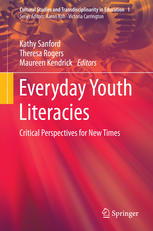

Most ebook files are in PDF format, so you can easily read them using various software such as Foxit Reader or directly on the Google Chrome browser.
Some ebook files are released by publishers in other formats such as .awz, .mobi, .epub, .fb2, etc. You may need to install specific software to read these formats on mobile/PC, such as Calibre.
Please read the tutorial at this link: https://ebookbell.com/faq
We offer FREE conversion to the popular formats you request; however, this may take some time. Therefore, right after payment, please email us, and we will try to provide the service as quickly as possible.
For some exceptional file formats or broken links (if any), please refrain from opening any disputes. Instead, email us first, and we will try to assist within a maximum of 6 hours.
EbookBell Team

4.1
70 reviewsTestifying to the maturity of the youth literacy education field, this collection of papers displays the increasing sophistication of research on the subject, and at the same time offers pointers to its potential for development in the next decade. The contributors track the rapid proliferation of youth literacies in today’s digital age, from video games to social media and film production. Drawing on detailed research and an intimate knowledge of youth communities in nations as diverse as Canada and Uganda, they provide notable examples of digital literacies in situ, and challenge conventional wisdom about literacy education.
The chapters do more, however, than merely offer reportage of a crisis in literacy education. The authors embrace the core challenge faced by educators everywhere: how to incorporate and utilize new modes of literacy in education, and how to realize the potential benefits of heterogeneous modern media in youth literacy education, especially in marginalized, remote, and disadvantaged communities. This volume expands our view of digital communications technologies and digital literacies to include complex understandings of how media such as translated videos can serve as learning tools for youths whose access to literacy education is limited. In particular, a number of contributing scholars provide important new information about the praxis of teachers and the literacies adopted by young people in Africa, a continent largely neglected by literacy researchers. This book’s global perspective, and its ground-level viewpoint of youth literacy practices in a variety of locations, problematizes normative assumptions about researching literacy as well as about literacy itself.